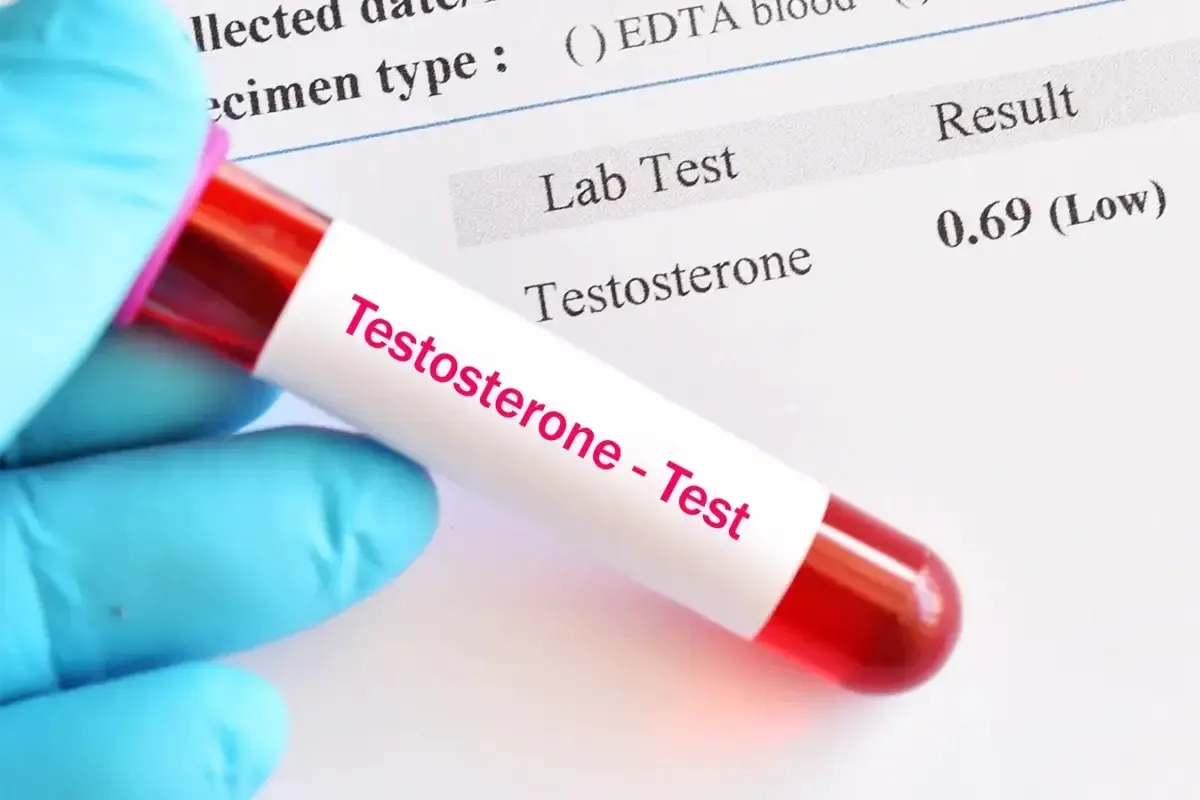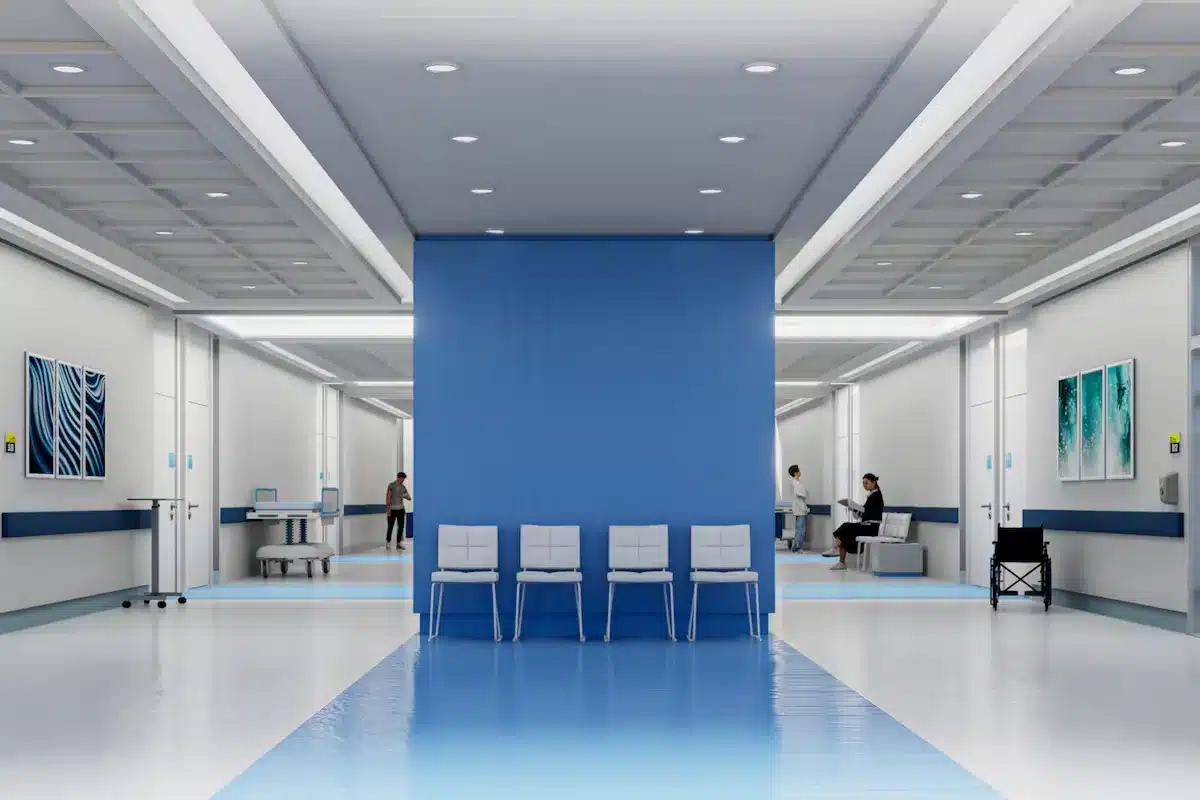How long does it take to treat colon cancer? Did you know that over 1.9 million new cases of colon cancer are diagnosed worldwide each year? Survival rates have greatly improved with timely and effective treatment?
Knowing how long colon cancer treatment takes is very important for patients and their families. The time needed for treatment changes based on several things. These include the cancer’s stage, the type of treatment, and the patient’s health.
At our institution, we offer world-class healthcare with care tailored to each patient. We help international patients find the best treatments for their needs. Our aim is to support patients every step of the way, ensuring they get the best care possible.

Key Takeaways
- Colon cancer treatment duration varies based on the stage of cancer and treatment type.
- Personalized support is key for international patients looking for advanced medical treatments.
- Getting the right treatment quickly can greatly improve survival chances.
- Our institution provides top-notch healthcare with full support.
- It’s vital for patients and their families to understand the treatment timeline.
The Journey Through Colon Cancer Treatment
It’s important for patients to understand colon cancer treatment. This journey includes surgery, chemotherapy, and radiation therapy. Each treatment is chosen based on the patient’s needs.
Overview of Treatment Pathways
Colon cancer treatment plans vary. Surgery is key for early-stage cancer. For more advanced cases, chemotherapy and radiation therapy are used alone or together.
The treatment plan can be:
- Surgery alone
- Chemotherapy followed by surgery
- Radiation therapy with chemotherapy
- A combination of these treatments
Factors Influencing Treatment Timelines
Several things affect how long treatment lasts. These include:
- The stage of cancer at diagnosis
- The patient’s overall health and any other health issues
- The type and complexity of the treatment plan
- The patient’s response to treatment
Knowing these factors helps everyone involved plan for the treatment journey.
From Screening to Diagnosis: Initial Timeline
Knowing the timeline from screening to diagnosis is key for those facing colon cancer. This time is vital as it shapes the treatment plan ahead.
A colonoscopy lets doctors see inside the colon and rectum for polyps or cancer. If they find something suspicious, a biopsy is done to check for cancer.
Colonoscopy to Confirmed Diagnosis
The wait from colonoscopy to diagnosis can take 1-2 weeks. Patients often feel anxious during this time. Once the biopsy results are in, if cancer is found, the next step is to figure out its stage.
Staging Process Duration
The staging process involves tests to see how far the cancer has spread. This includes CT scans, MRI, or PET scans. It usually takes 2-4 weeks after the initial diagnosis.
Here’s a quick look at the typical timeline:
| Procedure | Typical Timeframe |
| Colonoscopy and Biopsy | 1 day |
| Biopsy Results | 1-2 weeks |
| Staging Process | 2-4 weeks |
| Total Time | 3-6 weeks |
Knowing this timeline helps patients prepare emotionally and practically. It’s important to talk to your healthcare provider about your specific situation. This way, you can get a better idea of your diagnosis timeline.
Treatment Planning Phase
A team of healthcare experts works together to make a treatment plan for colon cancer patients. This is a key step to make sure the treatment fits the patient’s needs well.
Multidisciplinary Team Consultations
During this phase, specialists like surgeons and oncologists meet to discuss the treatment. This team effort helps find the best treatment options for each patient.
“The integration of multiple disciplines in cancer care has been shown to improve patient outcomes,” as noted by a leading cancer research institution. This highlights the value of teamwork in fighting colon cancer.
Pre-treatment Preparation Period
Before starting treatment, patients go through a preparation period. They learn about their treatment plan and what to expect. This helps reduce anxiety and prepares them for treatment.
This time may also include extra tests to make the plan even better. Our team helps patients with any worries and makes sure they’re ready for treatment.
By focusing on the patient and using a team approach, we create a treatment plan that fits each patient’s needs.
Stage-Specific Treatment Timelines
Knowing the treatment timelines for colon cancer by stage is key for patients. The time needed for treatment changes with the stage at diagnosis. We’ll look at each stage’s treatment time to help patients understand what’s ahead.
Stage 1 Colon Cancer Treatment Time
Patients with stage 1 colon cancer usually have a shorter treatment time. Surgery is often the main treatment. Recovery takes about 4 to 6 weeks. Sometimes, no extra treatments are needed, making the whole treatment shorter.
Stage 2 Colon Cancer Treatment Time
Stage 2 colon cancer treatment might include surgery and adjuvant chemotherapy. This is to lower the chance of the cancer coming back. The whole treatment can take 3 to 4 months, including recovery and chemotherapy.
Stage 3 Colon Cancer Treatment Time
Stage 3 colon cancer treatment usually has surgery and adjuvant chemotherapy. The chemotherapy can last up to 6 months. The total treatment time depends on the chemotherapy and how well the patient responds.
Stage 4 Colon Cancer Treatment Length
Stage 4 colon cancer treatment aims to control the disease and ease symptoms. The treatment time varies a lot. It depends on how far the cancer has spread and the treatment chosen. Palliative care is important, and treatment can last from months to years, based on the patient’s health and response.
Surgical Approaches and Recovery Periods
It’s important for patients to know about the different surgical methods for colon cancer. Each method affects how long it takes to recover and the treatment’s success.
Minimally Invasive Surgery Recovery
Minimally invasive surgery, or laparoscopic surgery, uses small cuts in the belly to remove the cancer. This method causes less damage and trauma to the body. So, patients usually recover faster than those who have open surgery.
Those who have this surgery often have:
- Less pain after surgery
- Shorter stays in the hospital
- Can get back to normal activities quicker
Open Surgery Recovery Timeline
Open surgery, by contrast, needs a bigger cut in the belly to reach the colon. It’s used for more complex cases or when the cancer is hard to get to.
Recovery from open surgery takes longer. Patients usually face:
- A longer hospital stay, often 7 to 10 days
- More pain and discomfort after surgery
- A slower return to normal activities, taking weeks to months
Hospital Stay Duration Expectations
The time spent in the hospital after colon cancer surgery depends on the method and the patient’s health. For minimally invasive surgery, stays are usually 2 to 5 days.
On the other hand, open surgery means a longer stay, usually 7 to 10 days. The length of stay can also be affected by complications or the need for extra treatments.
Colon Cancer Treatment Duration: The Complete Picture
Knowing how long colon cancer treatment lasts is key for patients. The time needed can change a lot. This depends on the cancer’s stage, the treatment type, and the patient’s health.
Average Length of Full Treatment Course
The full treatment for colon cancer can last from a few months to over a year. Early-stage colon cancer treatments are usually shorter. For example, stage I colon cancer might just need surgery. But stage III or IV colon cancer treatments can last longer, including chemotherapy and radiation.
Studies show treatment is divided into several parts. These are pre-treatment, active treatment, and recovery. Each part is important for the patient’s journey. Pre-treatment can take weeks for tests and consultations. Active treatment, like surgery or chemotherapy, can last months.
Variations Based on Individual Factors
Many things can change how long treatment lasts. Patients with health issues or who are older might need longer treatments. Also, how well a patient responds to treatment affects the treatment length.
“The treatment plan needs to be tailored to the individual, taking into account their overall health, the stage of their cancer, and their response to treatment.”
Other things that can change treatment length include the surgery type and the need for extra chemotherapy. Knowing these factors helps patients and their families prepare.
In summary, while treatment lengths vary, it’s important for patients to know their own situation affects their treatment. By understanding these factors, patients can better plan and deal with their treatment journey.
Chemotherapy Protocols and Timeframes
Understanding chemotherapy protocols is key for colon cancer patients. Chemotherapy is a common treatment to lower cancer recurrence risk. It uses drugs to kill cancer cells.
Adjuvant Chemotherapy Schedules
Adjuvant chemotherapy is given after primary treatment to lower recurrence risk. The schedule varies but usually includes cycles of treatment and rest periods.
Duration Between Chemotherapy Cycles
The time between cycles varies by chemotherapy regimen. Cycles are often repeated every 2-4 weeks.
Total Chemotherapy Treatment Length
The treatment length depends on cancer stage, patient response, and chemotherapy protocols. Adjuvant chemotherapy for colon cancer usually lasts 3 to 6 months.
| Chemotherapy Aspect | Description | Typical Duration |
| Adjuvant Chemotherapy | Given after primary treatment to reduce recurrence risk | 3-6 months |
| Chemotherapy Cycles | Cycles of treatment followed by rest periods | Repeated every 2-4 weeks |
| Total Treatment Length | Depends on cancer stage, patient response, and protocol | Varies, typically 3-6 months |
Radiation Therapy Timeline for Colon Cancer
Radiation therapy is key in treating colon cancer. Its length varies based on the patient. We’ll cover the standard course, short-course vs. long-course, and recovery time.
Standard Radiation Course Length
The standard radiation course for colon cancer lasts several weeks. The exact time depends on the treatment plan and the patient’s health. Radiation is given five days a week, with each session short.
We customize treatment based on cancer stage and health. The number of sessions ranges from 25 to 30, over five to six weeks.
Short-Course vs. Long-Course Radiation
There are two main radiation therapy approaches for colon cancer: short-course and long-course. Short-course radiation uses a higher dose over one to two weeks. It’s often for advanced cases or with other treatments.
Long-course radiation takes five to six weeks. It gives a more spread-out dose, which may reduce side effects and improve results.
Recovery Period After Radiation Completion
The recovery time after radiation therapy varies. Some may feel tired and have side effects for weeks. We suggest a gradual recovery plan to let the body heal.
Follow-up care is key during recovery. We watch patients closely to manage side effects and check treatment success. Recovery time can be weeks to months, depending on the patient’s response.
Neoadjuvant Treatment Duration
Neoadjuvant therapy is used to shrink tumors before surgery. It can greatly affect the treatment timeline for colon cancer. We will look at the different parts of neoadjuvant treatment duration. This includes pre-surgery chemotherapy, combined chemoradiation, and the waiting period before surgery.
Pre-surgery Chemotherapy Timeline
Pre-surgery chemotherapy, or neoadjuvant chemotherapy, aims to make tumors smaller. This makes surgery easier. The length of pre-surgery chemotherapy varies based on the treatment plan and how well the patient responds.
Neoadjuvant chemotherapy for colon cancer is given in cycles. Each cycle lasts a few weeks. The total time can be between 8 to 12 weeks. This depends on the chemotherapy plan and how well the patient can handle it.
Combined Chemoradiation Duration
Combined chemoradiation uses both chemotherapy and radiation therapy before surgery. It can be more effective than either treatment alone in shrinking tumors.
The time for combined chemoradiation varies. It usually lasts between 4 to 6 weeks. During this time, patients get radiation therapy daily, Monday through Friday. They also get chemotherapy on specific days.
Waiting Period Between Neoadjuvant Therapy and Surgery
After neoadjuvant therapy, there’s a waiting period before surgery. This time lets the body recover and the tumor to shrink more.
The waiting period’s length varies. It depends on how well the patient recovers and how the tumor responds to treatment. Surgery is usually scheduled 4 to 8 weeks after neoadjuvant therapy ends.
| Treatment Type | Typical Duration | Waiting Period Before Surgery |
| Pre-surgery Chemotherapy | 8-12 weeks | 4-8 weeks |
| Combined Chemoradiation | 4-6 weeks | |
| Neoadjuvant Therapy (Overall) | Varies |
Knowing the duration of neoadjuvant treatment is key for colon cancer patients. It helps them plan their treatment journey better. By understanding what to expect, patients can prepare for the challenges ahead. They can also make informed decisions about their care.
Post-Treatment Recovery Journey
The post-treatment recovery phase is key for colon cancer patients. It covers many health and well-being areas. After treatment, patients start a new recovery phase that needs careful management and support.
Physical Recovery Milestones
Physical recovery is a big part of the post-treatment journey. Patients will see several milestones, like getting stronger and recovering from surgery. It’s essential to follow a healthcare provider’s guidance for a smooth recovery.
At first, patients might feel very tired. This feeling gets better as their body heals. Engaging in gentle exercises and physical therapy can help regain strength and mobility. The time it takes to recover physically varies, based on surgery extent and overall health.
Digestive Function Normalization Period
Colon cancer treatment can affect digestive function. After treatment, patients might see changes in bowel habits and dietary needs. Gradually reintroducing foods and eating a balanced diet can help normalize digestion.
Patients often face temporary digestive issues like diarrhea or constipation. Staying hydrated and managing stress can help with these symptoms. Most patients see digestive function improvements within a few months after treatment.
Psychological Recovery Considerations
Psychological recovery is as important as physical recovery. Patients may feel a range of emotions, from relief to anxiety. Seeking support from mental health professionals can help manage these feelings.
Support groups, whether in-person or online, offer a community for sharing experiences. Engaging in stress-reducing activities like meditation or yoga can also help with psychological recovery.
Understanding the different aspects of post-treatment recovery helps patients navigate this critical phase. With the right support and care, colon cancer patients can achieve a successful recovery and improve their quality of life.
Special Population Treatment Timelines
Treating colon cancer in special groups needs careful thought. Elderly patients and those with health issues have different needs. Their treatment plans and timelines must be adjusted.
Elderly Patients Treatment Duration
Elderly patients face unique challenges in treatment. Age doesn’t mean they can’t have aggressive treatment. We look at their health, how well they function, and what they want.
The treatment time for elderly patients can change. This is due to:
- Health issues that make treatment harder
- Drug interactions from taking many medicines
- How well they can handle side effects
Treatment Timeline with Significant Comorbidities
Patients with serious health problems may have different treatment times. Managing these conditions well is key to avoiding problems with cancer treatment. We team up with other doctors to manage these issues.
Important things to consider include:
- How health problems affect treatment
- Changing treatment plans to lower risks
- Watching for complications during treatment
Immunocompromised Patient Considerations
Patients who can’t fight off infections well need special care. They’re at higher risk for problems. We plan and watch them closely.
When treating these patients, we think about:
- Preventing infections
- Changing doses of treatments to reduce harm
- Keeping an eye out for treatment side effects
By customizing treatment for special groups, we can improve their lives and outcomes.
Long-Term Management and Monitoring
After treatment for colon cancer, patients start a critical phase. This phase is key for catching any signs of cancer coming back early. It also helps keep the patient’s health and well-being in check.
This phase includes regular check-ups, tests, and monitoring. It’s all about the patient’s specific needs. We’ll cover the main parts, like how often to have colonoscopies, when to get imaging tests, and how often to have blood tests. We’ll also talk about how long follow-up care lasts.
Surveillance Colonoscopy Schedule
Colonoscopies are a big part of managing colon cancer long-term. The timing of these tests depends on the patient’s diagnosis and treatment. Usually, the first colonoscopy is needed within a year after surgery.
Recommended Surveillance Colonoscopy Schedule:
| Time After Surgery | Colonoscopy Frequency |
| 1 year | First surveillance colonoscopy |
| 3 years | Repeat colonoscopy if initial results are normal |
| 5 years | Continue surveillance every 5 years if previous results are normal |
Imaging Follow-Up Timeline
Imaging tests, like CT scans, help watch for cancer coming back or spreading. How often these tests are needed depends on the cancer’s stage and the patient’s health.
Typical Imaging Follow-Up Schedule:
- Every 6-12 months for the first 3 years
- Every 12 months for the next 2 years
- As needed based on patient risk factors and previous test results
Blood Test Monitoring Frequency
Blood tests, like CEA tests, help check for cancer signs. These tests are usually done every 3-6 months in the first few years after treatment.
Duration of Follow-Up Care
The length of follow-up care for colon cancer patients varies. It usually lasts at least 5 years after treatment. But, it can go longer for some, based on their risk factors and health.
Knowing about long-term management and monitoring helps colon cancer patients. They can better understand their care and work with their healthcare team. This ensures the best possible outcomes.
Recurrence and Additional Treatment Timelines
When colon cancer comes back, it’s important to act fast. The time needed for treatment varies based on many factors. Patients face a new challenge that requires understanding and exploring different treatment options.
Detection to Retreatment Timeframe
The time from finding cancer again to starting treatment is key. Diagnostic tests like imaging and biopsies help confirm the cancer’s return. This process can take anywhere from a few weeks to a couple of months.
After confirming the cancer, a multidisciplinary team creates a treatment plan. This team approach ensures a tailored care plan, improving treatment outcomes.
Secondary Treatment Duration Expectations
The length of secondary treatment for colon cancer varies. It depends on the treatment type, how widespread the cancer is, and the patient’s health. Chemotherapy, radiation therapy, and surgical interventions are common treatments, each with its own timeline.
- Chemotherapy: It can last from a few months to a year or more, based on the treatment and how well the patient responds.
- Radiation therapy: It usually lasts several weeks, depending on the dose and how often it’s given.
- Surgical interventions: Recovery times vary, but patients often need a few weeks to a couple of months to heal.
Palliative Care Timeline Considerations
For those with advanced colon cancer, palliative care is vital. It helps manage symptoms and improve life quality. The time needed for palliative care varies, focusing on symptom relief and comfort.
Palliative care can be given alongside treatments aimed at curing the cancer or as the main focus. It continues as long as the patient needs support.
Emerging Treatments and Their Impact on Duration
New treatments are changing how we fight colon cancer. They offer hope and improve treatment times for many. These therapies are making a big difference.
Medical research is always moving forward. It’s key to know how new treatments affect treatment time. Let’s look at some of these new therapies and their schedules.
Immunotherapy Treatment Schedules
Immunotherapy uses the body’s immune system to fight cancer. It’s showing great promise in treating colon cancer. The treatment schedule varies based on the drug and how well the patient responds.
Immunotherapy is given in cycles, with treatments every few weeks. The length of treatment can be months to a year or more. This depends on how well the patient does and how they handle the treatment.
Example of Immunotherapy Treatment Schedule:
- Initial treatment phase: Every 2 weeks for 12 weeks
- Maintenance phase: Every 4 weeks for up to 1 year
Targeted Therapy Duration
Targeted therapy focuses on specific cancer molecules. The treatment length varies based on the drug and the patient’s health.
Some targeted therapies are used with chemotherapy, while others are alone. Treatment can last from months to years. Regular checks are needed to see how well it’s working and to watch for side effects.
| Treatment Type | Typical Duration | Administration Frequency |
| Targeted Therapy | Several months to years | Varies (daily, weekly, or every 2-3 weeks) |
| Combination Therapy | 6 months to 1 year or more | Every 2-3 weeks |
Clinical Trial Participation Timeframes
Clinical trials give patients access to new treatments. The time in a trial can vary a lot. It depends on the trial’s goals and design.
Trials can last from short to long periods. Some may need ongoing visits and checks. Patients should talk to their doctor about what to expect.
As we keep finding new treatments for colon cancer, it’s important for patients to stay updated. Knowing about these new therapies helps patients make better choices. They can get more effective and personalized care.
Quality of Life During Treatment Periods
Keeping quality of life high is key for colon cancer patients during treatment. It’s not just about fighting cancer. It’s also about making sure patients can enjoy life despite their illness.
Managing Work and Treatment Schedules
Patients often struggle to balance work and treatment. Effective time management is essential. They should talk to their bosses about making changes to help them.
This could mean flexible hours or taking a break. Every situation is different. It’s important to find a solution that fits each person’s needs.
Family Planning During Treatment Duration
Family planning is a big deal for many patients, even when they’re in treatment. It’s vital to talk about fertility options with doctors before starting treatment. Some treatments can harm fertility.
Patients should know how their treatment might affect their ability to have children. They might want to consider freezing eggs or sperm.
Support Services Throughout Treatment Timeline
Having access to support services is critical for quality of life. This includes mental health support, nutrition advice, and physical therapy. Support groups, online or in-person, offer a community of understanding.
We stress the need for a complete care plan. It should include these support services. This way, patients get the care they need for their whole well-being.
Conclusion
Colon cancer treatment is complex and tailored to each person. We’ve looked at how different factors affect treatment time. This includes the cancer’s stage and the treatment type.
Every patient’s journey is unique. Knowing the treatment duration and process is key. It helps manage expectations and make informed choices. New treatments like immunotherapy and targeted therapy offer hope for better care.
Keeping quality of life in focus is important. We provide personalized care and support. This helps patients feel confident as they go through treatment.
We’re dedicated to improving colon cancer treatment. Our goal is to offer top-notch healthcare to international patients. We aim for the best outcomes and quality of life for everyone.
FAQ
How long does colon cancer treatment typically last?
Colon cancer treatment time varies. It depends on the cancer stage, your health, and the treatment. We offer personalized care and support to help you through your treatment.
What is the average length of the full treatment course for colon cancer?
The full treatment for colon cancer can last from a few months to over a year. This depends on the cancer stage and treatment type.
How long does it take to recover from colon cancer surgery?
Recovery from colon cancer surgery can take weeks to months. It depends on the surgery type and your health. Minimally invasive surgery usually has a shorter recovery time than open surgery.
What is the typical duration of chemotherapy for colon cancer?
Chemotherapy for colon cancer can last from 3 to 6 months. This depends on the cancer stage and treatment plan. The total treatment length can be up to 6 months or more.
How long does radiation therapy for colon cancer typically last?
Radiation therapy for colon cancer can last from a few weeks to several months. It depends on the treatment plan and your health.
What is the waiting period between neoadjuvant therapy and surgery?
The wait between neoadjuvant therapy and surgery varies. It depends on the treatment plan and your health. We offer personalized guidance and support during this time.
How often are surveillance colonoscopies performed after colon cancer treatment?
Surveillance colonoscopies after treatment vary. They depend on your health and treatment plan. Regular follow-up care is key to monitor for recurrence and ensure your long-term health.
What is the typical duration of follow-up care after colon cancer treatment?
Follow-up care after colon cancer treatment can last from several years to a lifetime. It depends on your health and treatment plan.
How long does it take to manage recurrence of colon cancer?
Managing recurrence of colon cancer varies. It depends on your health and treatment plan. We provide personalized care and support during this time.
What are the treatment schedules for emerging therapies like immunotherapy and targeted therapy?
Treatment schedules for emerging therapies like immunotherapy and targeted therapy vary. They depend on your health and treatment plan. We offer personalized guidance and support for these treatments.
How can patients manage work and treatment schedules during colon cancer treatment?
We help patients manage work and treatment schedules during colon cancer treatment. We ensure you can maintain your quality of life.
What support services are available throughout the colon cancer treatment timeline?
We offer various support services throughout your treatment. This includes counseling, nutritional guidance, and other resources. We help you navigate your treatment journey.








